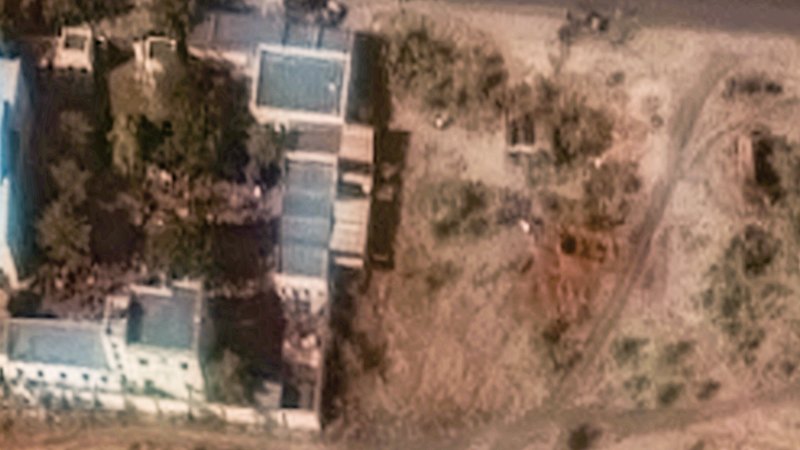
In a chilling development, new satellite images have surfaced suggesting mass burials are underway in El Fasher, a city in Sudan’s Darfur region, now under the control of the paramilitary group Rapid Support Forces (RSF). The city fell to the RSF on October 26, following an 18-month siege that has left its population of 260,000 in dire straits.
The images, analyzed by the Yale School of Public Health’s Humanitarian Research Lab, depict trenches, disturbed earth, and what appear to be bodies, indicating a large-scale massacre of civilians. “We’re seeing a velocity of killing that can only be compared to the Rwandan genocide,” said Nathaniel Raymond, executive director of the Yale lab, in a statement to CNN.
Mass Burials and Humanitarian Concerns
The satellite images, taken over two sites in El Fasher, suggest mass graves are being dug and covered. One site is near a mosque north of the Saudi hospital, where approximately 460 people were reportedly killed. The other is beside a former children’s hospital that the RSF allegedly used as a prison. The Yale researchers note that the dimensions of the graves make it difficult to estimate the number of bodies interred, as bodies may be layered on top of each other.
International Criminal Court prosecutors have begun collecting evidence of alleged mass killings and rapes in the city. However, the full scope of the violence remains unclear due to poor communications in the region. The burial of bodies further complicates efforts to account for the events, as investigators would need to exhume bodies in an area controlled by the RSF.
“The crimes that are being committed are so horrendous,” United Nations Secretary-General Antonio Guterres said, warning that the war in Sudan was “spiralling out of control” and calling for “mechanisms of accountability.”
Humanitarian Crisis and International Response
As the UN expresses fears that hundreds are dead, concerns grow for tens of thousands who fled El Fasher since October 26. Of the 62,000 believed to have escaped, only 10,000 have reached the refugee camp at Tawila, 65 kilometers away. Survivors report harrowing journeys, passing bodies and injured individuals along the way.
Earlier satellite images showed white objects, identified as likely corpses, near the Saudi hospital and the former children’s hospital. The RSF denies killing anyone at the Saudi hospital, but testimonies and satellite imagery paint a grim picture of the attack.
In response to the crisis, Australian Foreign Minister Penny Wong announced an additional $10 million in humanitarian aid, condemning the RSF for the atrocities and calling for an immediate end to the violence.
“We condemn the atrocities committed by the Rapid Support Forces and call for an immediate end to the violence and unhindered humanitarian access,” Wong stated.
Historical Context and Ongoing Conflict
The conflict between the RSF and the Sudanese military, which began in April 2023, has already claimed over 40,000 lives, according to UN figures. However, aid groups suggest the actual death toll could be much higher. The RSF’s capture of El Fasher marks a significant milestone in the civil war, granting them control over more than a quarter of Sudanese territory.
The RSF, predominantly ethnically Arab, is believed to be backed by the United Arab Emirates, though the UAE denies supporting their military campaign. Meanwhile, the Sudanese military, supported by Egypt and Iran, has rejected a US proposal for a ceasefire, vowing to rally public support against the RSF.
As the international community grapples with the unfolding crisis, the White House has expressed its commitment to working with other nations to end the conflict. However, the path to peace remains fraught with challenges, with both sides entrenched in their positions.
“The nations of the world might be able to say that they could not have stopped it, but they cannot reasonably say that they did not know,” the Yale lab authors warned, highlighting the systematic and intentional process of ethnic cleansing they believe is occurring in El Fasher.
The situation in El Fasher and the broader Darfur region remains precarious, with the potential for further escalation. As the world watches, the need for accountability and humanitarian intervention becomes ever more urgent.







